What would happen if when pressure testing a residential house you did not close off the shut off valves and instead pumped air directly at the gas valves for water heater/furnaces? Is it possible to damage the unit
You are using an out of date browser. It may not display this or other websites correctly.
You should upgrade or use an alternative browser.
You should upgrade or use an alternative browser.
Pressure testing a houses gas lines
- Thread starter andyh1995
- Start date

Help Support Plumbing Forums:
This site may earn a commission from merchant affiliate
links, including eBay, Amazon, and others.
Yes, you can blow the gas control diaphragms out.What would happen if when pressure testing a residential house you did not close off the shut off valves and instead pumped air directly at the gas valves for water heater/furnaces? Is it possible to damage the unit
How much pressure did you use ?
When appliances are left connected and I want to test an existing system, I pump the lines up with a bicycle pump to 8”-15” water column and watch my gauge for 15 minutes. If no pressure drop I call it good.
I also test sometimes with nitrogen and a digital manometer. It’s much more sensitive and you can check the system for tightness in just a couple minutes.
Hello, our test is 50 ounces for thirty minutes . The gas was shut off from national fuel for a leak. Would this potentially do damage at this pressure ?Yes, you can blow the gas control diaphragms out.
How much pressure did you use ?
When appliances are left connected and I want to test an existing system, I pump the lines up with a bicycle pump to 8”-15” water column and watch my gauge for 15 minutes. If no pressure drop I call it good.
I also test sometimes with nitrogen and a digital manometer. It’s much more sensitive and you can check the system for tightness in just a couple minutes.
When I test with higher than working pressure I disconnect the appliance and cap the supply outlet. This way if the valve leaks it doesn’t ruin your gas control of the appliance.
So would it potentially ruin the appliance if I did not shut the valve off at that pressure? National fuel didnt seem to think so at all and it's throwing me a big curve ball. A co worker of mine said the same thing where you can test up to the fixture with this pressure but I was told diffrentWhen I test with higher than working pressure I disconnect the appliance and cap the supply outlet. This way if the valve leaks it doesn’t ruin your gas control of the appliance.
It could potentially damage a gas control. That’s roughly 3psi.So would it potentially ruin the appliance if I did not shut the valve off at that pressure? National fuel didnt seem to think so at all and it's throwing me a big curve ball. A co worker of mine said the same thing where you can test up to the fixture with this pressure but I was told diffrent
I personally wouldn’t test to 3psi without disconnecting the appliances.
I actually did a low pressure test today, 8” wc for 15 minutes.

$31.99 ($10.66 / Count)
$35.86 ($11.95 / Count)
Waterdrop AP810 Whole House Water Filter, Replacement for 3M® Aqua-Pure® AP810, AP801, AP811, Whirlpool® WHKF-GD25BB, WHKF-DWHBB, 5 Micron, 10" x 4.5", Well & Tap Water Filter, Pack of 3
WaterdropDirect

$39.77
Water Heater Insulation Blanket Fits 40 50 60 80 Gallons Tank R8 Silver / Black
Trade Winds / US Energy Products

$32.98 ($5.50 / Count)
Membrane Solutions 5 Micron 10"x2.5" String Wound Whole House Water Filter Replacement Cartridge Universal Sediment Filters for Well Water - 6 Pack
Membrane Solutions Corp

$23.99 ($12.00 / Count)
$26.99 ($13.50 / Count)
AQUA CREST FXHSC Whole House Water Filter, Replacement for GE® FXHSC, GXWH40L, GXWH35F, American Plumber W50PEHD, W10-PR, Culligan® R50-BBSA, 5 Micron 10" x 4.5", High Flow Sediment Filters, Pack of 2
Water Purity Expert

$11.96 ($5.98 / Count)
$12.99 ($6.50 / Count)
GE FXWTC Whole Home System Replacement Filter Set, Pack of 2 - NSF Certified: Reduces Chlorine, Sediment, Rust & Other Impurities - Replace Every 3 Months for Best Results (replaces 910163)
Amazon.com

$35.99 ($12.00 / Count)
$40.78 ($13.59 / Count)
AQUA CREST FXHTC Water Filter Whole House Water Filter, Well Water Filter Replacement for GE® FXHTC, GXWH40L, American Plumber W10-PR, Culligan® RFC-BBSA, W10-BC, Carbon Filters, 5 Micron, Pack of 3
Water Purity Expert

$24.99
$32.15
RIDGID 57003 EZ Change Plumbing Wrench Faucet Installation and Removal Tool
Amazon.com

$31.99 ($16.00 / Count)
$39.99 ($20.00 / Count)
PUREPLUS 5 Micron 10" x 4.5" Whole House Sediment and Carbon Water Filter Replacement Cartridge for GE FXHTC, GXWH40L, GXWH35F, GNWH38S, Culligan RFC-BBSA, WRC25HD, PP10BB-CC, Pentek RFC-BB, 2Pack
PUREPLUS FILTERS
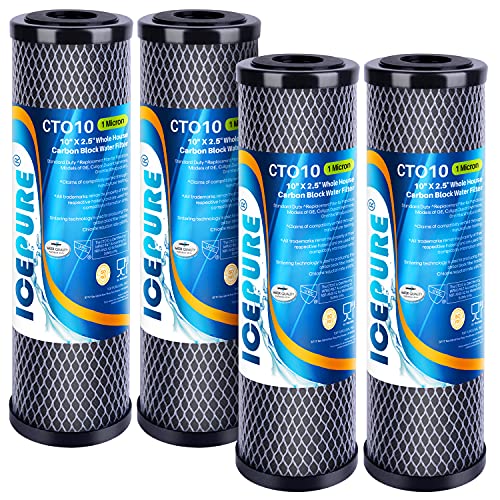
$29.99 ($7.50 / Count)
$39.86 ($9.96 / Count)
ICEPURE 1 Micron 2.5" x 10" Whole House CTO Carbon Sediment Water Filter Cartridge Compatible with DuPont WFPFC8002, WFPFC9001, SCWH-5, WHCF-WHWC, WHCF-WHWC, FXWTC, CBC-10, RO Unit, Pack of 4
ICEPURE Store
Appreciate it , thank you sir. Was a big thing with national fuel in our area because they seem to not do it at all and it caused alot of drama between me and the customer in regards to me capping off the fire place and leaving sections unfully tested because the valves were further back leaving a bit more pipe untested.It could potentially damage a gas control. That’s roughly 3psi.
In that case IAppreciate it , thank you sir. Was a big thing with national fuel in our area because they seem to not do it at all and it caused alot of drama between me and the customer in regards to me capping off the fire place and leaving sections unfully tested because the valves were further back leaving a bit more pipe untested.
disconnect the appliances and test with up to 15 psi.
Then if that held tight I would reconnect appliances and do a working pressure test of usually around 8-10” water column.
Here’s what I use to do a working pressure test.

One end has a Schrader valve you pump it up with air then close your valve.
Last edited:
Here read this. It pretty much settles it.
https://www.bradfordwhite.com/forthepro-bulletins/maximum-inlet-gas-pressure/
https://www.bradfordwhite.com/forthepro-bulletins/maximum-inlet-gas-pressure/
Everything from it simply not working properly to starting a fire when the valve malfunctions. Gas leaks…..etc.Any idea what would happen that would be noticeable to a homeowner in the event of the pressure affecting it ?
Goodmorning Twowaxhack, another question for you on the same topic. Went to a call yesterday where national fuel was out again and had both the water heater and dryers gas line both disconnected and capped off and was told they were leaking gas internally. What was said is to much air was pumped into the system by somebody and I was wondering if this happened and the solenoid of the gas valves were blown would it cause gas to push through the fixture when they're on standby and have homeowners have the smell of gas at these appliances. If you have any articles like you did previously it would be an enormous help.
If someone over pressured the gas controls then it can most definitely cause the gas control to leak.
Who needs proof of that ? The link I posted to Bradford and White said it and it’s no different for other appliances.
Who needs proof of that ? The link I posted to Bradford and White said it and it’s no different for other appliances.
I wanted the proof as I was just curious and love the idea of an official article, very intresting though. So the solenoid inside the gas valve breaks and it's constantly letting gas flow through into the fixture ?
Also with the water heater disconnected, it had a Honeywell gas valve and I've called the manufacturer and they said a small smell of gas closer to the valve is normal if there's to much gas pressure. Do you think this could be a mistake by the national fuel guy shutting it off if I was to put a manometer there and I'm getting 14-15 water column?
I’m not sure what you’re trying to accomplish.
Over pressuring gas valves can damage them.
Good luck to you sir.
Over pressuring gas valves can damage them.
Good luck to you sir.
fairfieldfanatic
Member
- Joined
- Mar 21, 2022
- Messages
- 16
- Reaction score
- 9
Great idea to pressure test your gas lines! But the key word is “LINES”. Not the appliances. Most appliances will say something like “1/2 PSI MAX”. So disconnect the appliances, cap them off or use a shut off valve such that you’re only testing the delivery lines.
In my case, I piped the house with 1-1/4” main line and 1” lines branched out from there. I made an adapter that had a 1/4” npt and a dial pressure indicator to monitor. Using a small air compressor, I pumped the system up to 50 psig. Why ‘so high’? Because the street Natural Gas source is around 40-45 psig, so if my gas meter or regulator FAILS OPEN, the house will see all of that! So, . . . test for it.
Back to my method; with a static 50 and a dial gauge verifying it, I sprayed every joint with leak indicator and verified at least twice. An hour or more later, came back to the dial indicator to check if it moved.
By this time, the Gas Co inspector showed up (by appointment) and checked my setup. He said they don’t go to “This level of testing, and know of ant contractor either”.
For good measure, after the house was operational, I used a gas ‘sniffer’ to detect anything, both on the first day and a week later.
In my case, I piped the house with 1-1/4” main line and 1” lines branched out from there. I made an adapter that had a 1/4” npt and a dial pressure indicator to monitor. Using a small air compressor, I pumped the system up to 50 psig. Why ‘so high’? Because the street Natural Gas source is around 40-45 psig, so if my gas meter or regulator FAILS OPEN, the house will see all of that! So, . . . test for it.
Back to my method; with a static 50 and a dial gauge verifying it, I sprayed every joint with leak indicator and verified at least twice. An hour or more later, came back to the dial indicator to check if it moved.
By this time, the Gas Co inspector showed up (by appointment) and checked my setup. He said they don’t go to “This level of testing, and know of ant contractor either”.
For good measure, after the house was operational, I used a gas ‘sniffer’ to detect anything, both on the first day and a week later.
If your meter regulator blows out and your system sees 50psi street pressure then you don’t have to worry about your pipe leaking…….your appliances will leak and your house will probably blow up.Great idea to pressure test your gas lines! But the key word is “LINES”. Not the appliances. Most appliances will say something like “1/2 PSI MAX”. So disconnect the appliances, cap them off or use a shut off valve such that you’re only testing the delivery lines.
In my case, I piped the house with 1-1/4” main line and 1” lines branched out from there. I made an adapter that had a 1/4” npt and a dial pressure indicator to monitor. Using a small air compressor, I pumped the system up to 50 psig. Why ‘so high’? Because the street Natural Gas source is around 40-45 psig, so if my gas meter or regulator FAILS OPEN, the house will see all of that! So, . . . test for it.
Back to my method; with a static 50 and a dial gauge verifying it, I sprayed every joint with leak indicator and verified at least twice. An hour or more later, came back to the dial indicator to check if it moved.
By this time, the Gas Co inspector showed up (by appointment) and checked my setup. He said they don’t go to “This level of testing, and know of ant contractor either”.
For good measure, after the house was operational, I used a gas ‘sniffer’ to detect anything, both on the first day and a week later.
It’s happened before in at least one city I know of. Multiple homes burned to the ground.
https://www.chicagotribune.com/news/ct-xpm-1992-01-18-9201050882-story.html
Last edited:
fairfieldfanatic
Member
- Joined
- Mar 21, 2022
- Messages
- 16
- Reaction score
- 9
Twowaxhack; not if you setup with safety valves as I have. Before the appliances I’ve installed valves that if they see any sudden pressure spike, will close themselves off. Test the valve by simply blowing into them, and they will shut themselves.
Whoever had their houses burned down, . . . didn’t have these valves in place.
Whoever had their houses burned down, . . . didn’t have these valves in place.
















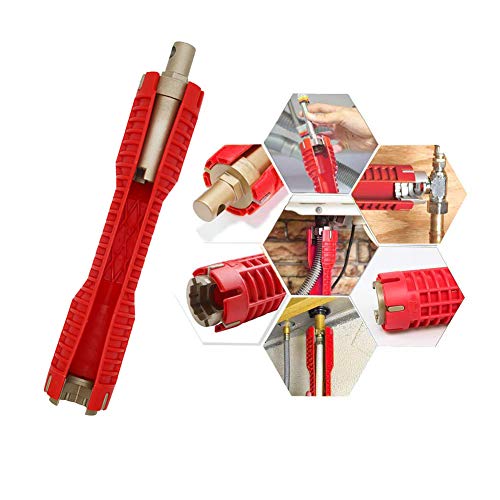






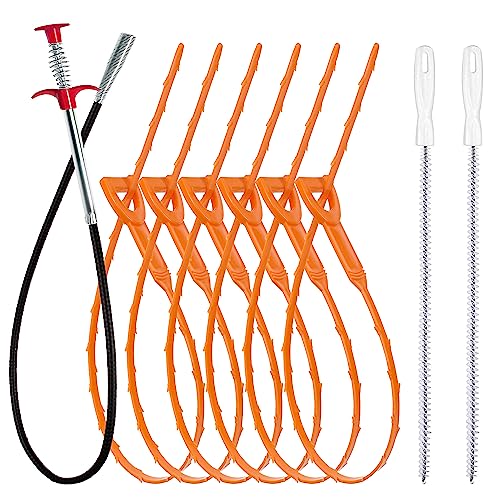
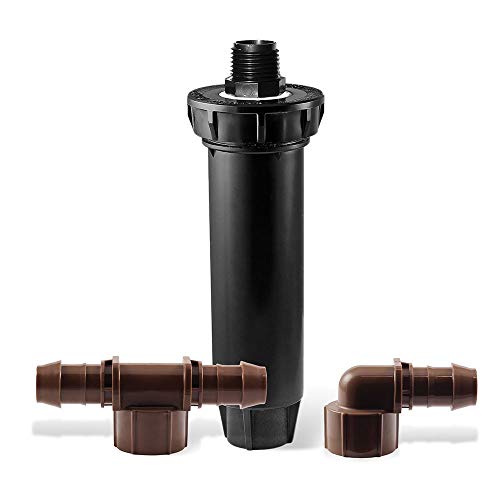















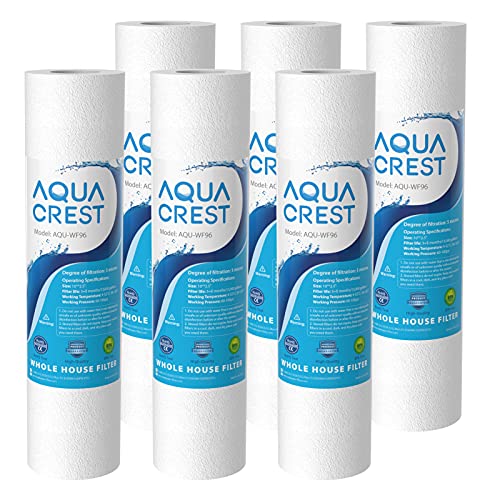



![MEISTERFAKTUR drain snake 2.0 [50 FT] - with drill attachment - Ideal plumbing snake for sink and drain unblocking - Solid drain auger for real DYIs! (50 FT - 1/4 inch)](https://m.media-amazon.com/images/I/41VwmTiOsgL._SL500_.jpg)
